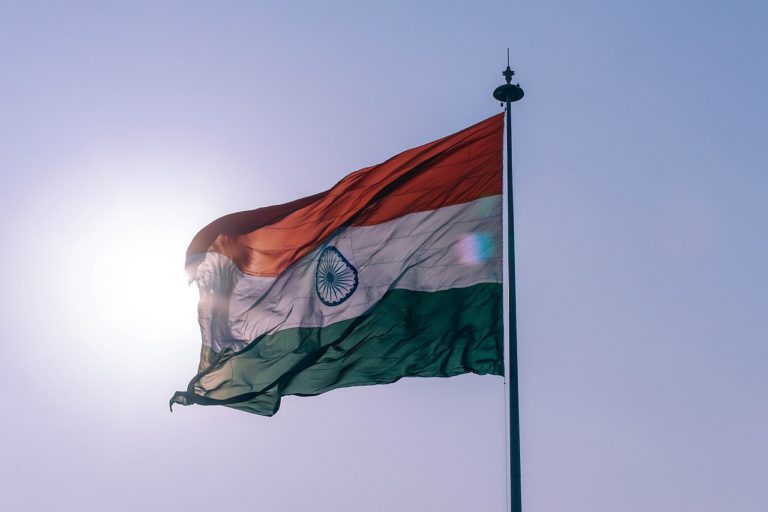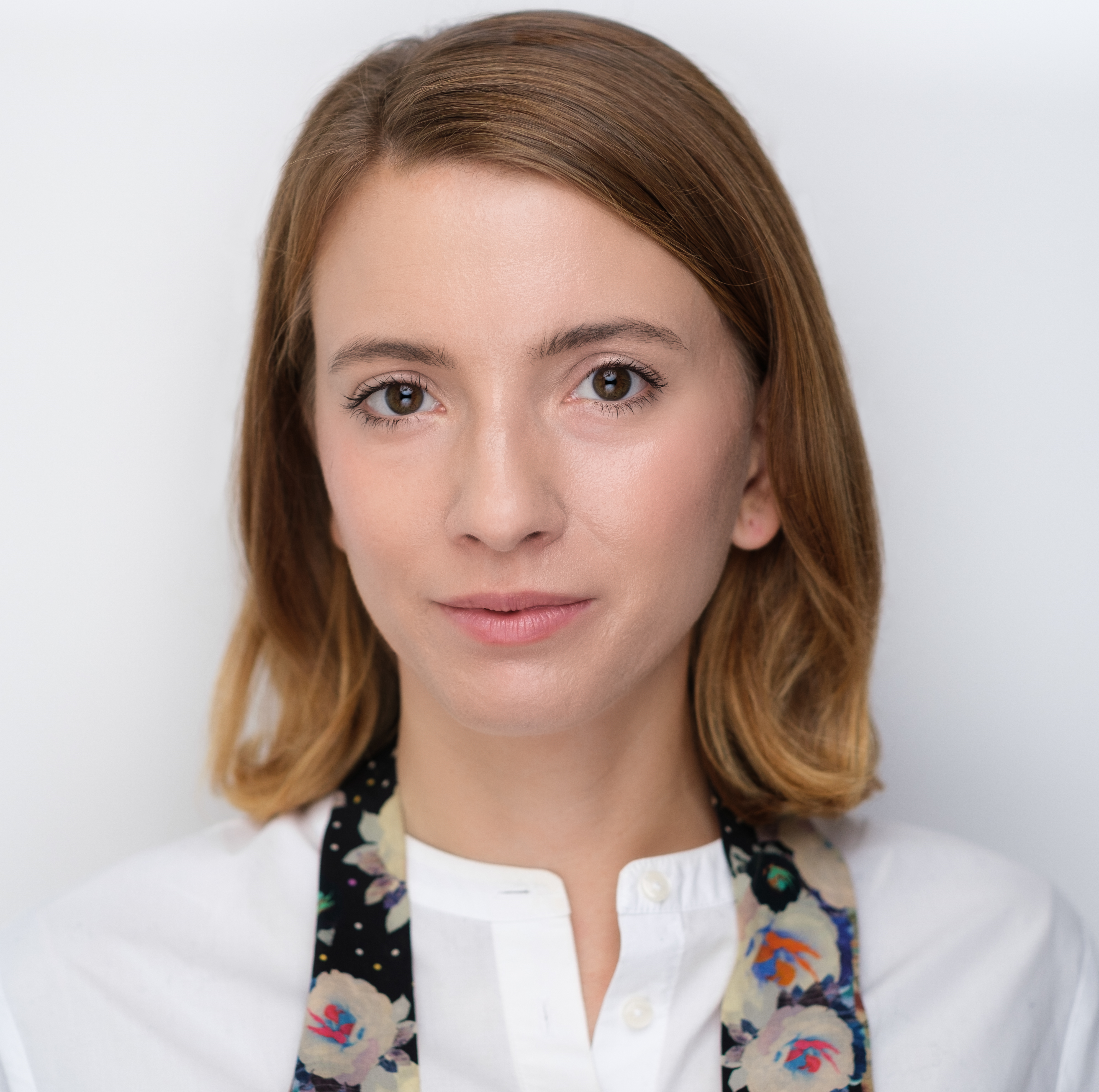
Ada Dyndo conducts an interview with Shairee Malhotra on India’s role in G20. Shairee Malhotra serves as a Coordinator of the T20 India Taskforce on Reformed Multilateralism for India’s G20 presidency.
Ada Dyndo: How would you explain India’s focus on the Global South during its G20 presidency?
Shairee Malhotra: The Global South has been a key focus during India’s G20 presidency. While it is understandable that the Russia-Ukraine war is a major concern globally, there are equally pressing challenges confronting the world including climate change, supporting the SDGs, and debt crises. Many of these challenges disproportionately impact nations of the Global South that represent 85% of the world’s population and require urgent attention. India’s goal was to have a constructive G20 aiming to collaborate on issues that pertain to development and impact most of humanity. In this context, India hosted the Voice of Global South Summit to amplify issues confronting developing countries. At the same time, India has also increasingly acted as a “bridge” between the North and South.
Ada Dyndo: What, according to you, could be the most lasting legacy of India’s G20 presidency?
Shairee Malhotra: India’s G20 presidency has had a unique focus on Africa in tandem with its broader focus on the Global South. PM Modi has pushed for full G20 membership of the African Union – a crucial step towards reforming multilateralism. This is conceptually feasible, since the European Union is already a member of the G20.
The logic is simple and sound – a Union of 55 countries with a population of over 1.3 billion people cannot be marginalised in a forum where global challenges such as sustainable development, economic recovery, and climate change – many of which disproportionately affect the African continent – are being deliberated upon. To contextualise, the EU has a population of less than 450 million. To enhance the legitimacy and effectiveness of the G20 as well as empower the African continent and its immense potential, the inclusion of the African Union as a G20 member is an important step towards a more representative global governance architecture. The G20 decision-making process is based around consensus between all member states. If the remaining countries agree with India’s proposal, this would be a crucial legacy from India’s G20 presidency.
Ada Dyndo: India identified several priorities for its G20 presidency. What are the three most important ones from the perspective of EU-India cooperation?
Shairee Malhotra: I think multilateral reforms, and energy transition and climate change are two important areas from the perspective of EU-India relations. These are key priorities on both the G20 agenda as well as the EU-India agenda and India’s bilateral ties with EU member states.
The Paris Agreement increased EU-India convergence, resulting in climate change becoming a central pillar in the partnership. Since then, India and Europe are working together through a number of bilateral agreements with the EU but also member states such as Italy, Germany, Sweden, in renewables as well as newer technologies such as green hydrogen. With their collaborative experiences, India and the EU present a compelling case of North-South cooperation, which is a prerequisite to achieving progress on many global challenges.
That multilateralism is in crisis is no secret, and for middle powers India and the EU, multilateral reforms are crucial. India is the world’s fastest growing economy and a stable world order is vital for further growth. The EU is itself a multilateral construct based on the rule of law. China and Russia’s assertive actions and respective weaponisation of trade and energy have only increased the need for an effective rules-based order that amongst other goals, secures supply chains and enables an open and stable Indo-Pacific region through which a majority of world trade now transits through.
Ada Dyndo: How is India contributing to the peace efforts in Ukraine?
Shairee Malhotra: India has condemned the conflict due to its disruptive impact everywhere but particularly on countries in the Global South in the form of the crisis of the three F’s – food, fuel, fertilisers. In sync with this position, India’s focus has been on finding a solution and urging for diplomacy and dialogue to prevail, while reiterating the core principles of the UN Charter of territorial integrity and sovereignty. India has also played a behind-the-scenes role in many instances, such as defusing the situation around Ukraine’s Zaporizhzhia nuclear power plant, and in the UN-led grain deal between Russia and Ukraine. Besides this, India has provided significant humanitarian assistance to Kyiv in the form of medical equipment and other relief supplies. In today’s volatile geopolitical context, India represents a much-needed reasonable voice urging for a return to the negotiating table.
Ada Dyndo: Do you think a G20 joint communiqué from the upcoming G20 Leaders’ Summit will be achievable?
Shairee Malhotra: Wording on the G20 communiqué will be challenging to navigate in a polarised forum, but remember it was PM Modi’s statement that “today’s era is not the era of war” that made its way into the final communiqué at the G20 summit in Bali last year. India is on the side of peace and will try to navigate the communiqué in sync with its position and focus on finding a solution to the conflict. Either way, a joint statement is certainly not the only way to measure success. Pushing the needle forward on technical reforms is just as important.
Ada Dyndo: You were involved in Think20 India – an official Engagement Group of the G20 that brings together think tanks and high-level experts to discuss policy issues relevant to the G20. As Coordinator of Task-force 7 (TF7): ‘Towards Reformed Multilateralism: Transforming Global Institutions & Frameworks’, how was your experience?
Shairee Malhotra: Think20 India’s Task-force 7 on Reformed Multilateralism brought together experts from 18 of the world’s top institutions to deliberate reforms for a multilateral order in crisis. This is perhaps amongst the most difficult topics under the G20 ambit given the critical importance of multilateralism on the one hand, and the general cynicism and pessimism that surrounds it on the other.
The work-streams under TF7 included UN reforms, digital governance, WTO reforms and policy coordination between multilateral groupings. It was a wonderful learning experience to coordinate the TF7 deliberations throughout the year and liaise with such eminent global scholars, beginning with the T20 inception conference and culminating in the T20 summit in Mysuru. The policy recommendations are captured in the Taskforce 7 statement, which is available here: https://t20ind.org/wp-content/uploads/2022/11/Task-Force-7-digital.pdf.
These recommendations now need to be translated into action for global governance to become more effective. This will be an ongoing process that will continue as Brazil – another country from the Global South – takes over the G20 baton from India.
On my part, I am extremely grateful for this opportunity and past year to make my small contribution to the nation and India’s G20 presidency.

Shairee Malhotra is Associate Fellow, Europe with the Observer Research Foundation’s (ORF) Strategic Studies Programme in New Delhi.
Shairee has several years experience working in Brussels – the headquarters of the European Union, at the European Institute for Asian Studies (EIAS), and at the European External Action Service (EEAS) – the official foreign policy arm of the EU – where she was selected at a success rate of only 1% for non-EU nationals.
Her writings and views have been featured in Haaretz, Hindustan Times, The Independent, Forbes, The Hindu, WION, EU Observer, Brussels Times, South China Morning Post, The Diplomat, The National Interest, Deccan Herald, LSE, Caravan amongst other prestigious platforms.
Shairee was recently awarded as a Top 40 Under 40 EU-India Leader by the Europe India Centre for Businessu & Industry (EICBI) for shaping the growth of EU-India relations.

Ada Dyndo is a seasoned expert on the Indian market, with over nine years of experience living in India. She specialized in bridging Polish and Indian businesses through tailored consultancy services (adadyndo.com). She has held prominent leadership roles, including Head of the Mumbai Foreign Trade Office for the Polish Investment and Trade Agency (PAIH) and Principal Consultant at the European Business and Technology Centre (EBTC) in New Delhi. Currently, she serves as Director of the India Desk at the Indo-Polish Chamber of Commerce and Industry (IPCCI). In 2022, Ada launched the WICCI India-EU Business Council, a platform dedicated to amplifying women’s voices in business. Recognized as one of the Top 40 Leaders Under 40 by the Europe India Centre for Business and Industry, Ada has also been honored with the Women Leaders Award by Her Key. An Indologist with two Master’s degrees and fluent in Polish, English, French, and Hindi, Ada brings a rich cultural perspective to her work. Having lived in Pune, Delhi, and Mumbai, she now resides in Puducherry, where she continues to foster impactful business connections between Poland and India.
czytaj więcej
Asia-Integration – Follow-up Report on Polish Policy Challenges Towards Asian Countries
The debate was the consequence of positive reactions to the open letter that the Boym Institute published in the summer of 2020. Many of its readers pointed out the necessity of broad consultations regarding the principles of the new multidimensional policy in order to reflect the diversity of perspectives, interests and conditions.
Online Course: “Feminism and Democracy: a Deep Dive”
The course will be taught via interactive workshops, employing the Adam Institute’s signature “Betzavta – the Adam Institute’s Facilitation Method“, taught by its creator, Dr. Uki Maroshek-Klarman. The award-winning “Betzavta” method is rooted in an empirical approach to civic education, interpersonal communication and conflict resolution.
We would like to inform, that Observer Research Foundation has published article of Krzysztof Zalewski - the Boym Institute Analyst, Chairman of the Board and Editor of the “Tydzień w Azji” weekly.
Krzysztof ZalewskiChina – USA in the South China Sea
The trade war is just one of the problems of confrontation between the United States and the People's Republic of China. Many aspects of this competition coincide in the South China Sea.
Paweł BehrendtTaiwanese Perceptions of Russia’s Ukraine war
Since the invasion of Ukraine, the Taiwanese government remained committed to its position of condemnation for Russia, humanitarian support for Ukraine, and deep appreciation and admiration for the Ukrainian people’s will to defy power, resist aggression, and defend their nation.
Kuan Ting ChenAre “Climate Refugees” (Just) About Climate?
As the awareness of the scale and pervasiveness of climate impacts on human societies keeps rising, so does the frequency with which the terms “climate refugees” and “climate migrants” are being used in the public discourse “to describe those who are being displaced due to adverse consequences related to climate change” (Atapattu, 2020).
Dawid JuraszekThe North Korean nuclear dismantlement and the management of its nuclear wastes
Evidence suggests that North Korea stores its high-level nuclear waste (HLW) in liquid form in tanks on the same site where it is made, and has not invested in infrastructure to reduce, dentrify, or vitrify this waste. However, this is just the tip of the iceberg, one of many aspects of the North Korean nuclear waste problem.
Nicolas LeviThe strategic imperatives driving ASEAN-EU free trade talks: colliding values as an obstacle
Recently revived talks aimed at the conclusion of an inter-regional free trade agreement between the Association of Southeast Asian Nations (ASEAN) and the European Union (EU) are driven by strategic imperatives of both regions.
Robin RamcharanNew Female Prime Minister Faces Thailand’s Political Turmoil
Thailand, known for military coups, political downfalls, and dashed democratic hopes, has a new Prime Minister. Paetongtarn Shinawatra is not only the youngest elected Prime Minister in the country's history and the second woman to hold this post, but she is also a member of the Shinawatra political dynasty.
Andżelika SerwatkaWomen in Public Debate – A Guide to Organising Inclusive and Meaningful Discussions
On the occasion of International Women's Day, we warmly invite you to read our guide to good practices: "Women in Public Debate – A Guide to Organising Inclusive and Meaningful Discussions."
Ada DyndoPolish-Macanese Artist Duo Presents New Works in Lisbon
Artist couple Marta Stanisława Sala (Poland) and Cheong Kin Man (Macau) will present their latest works in the exhibition “The Wondersome and Peculiar Voyages of Cheong Kin Man, Marta Stanisława Sala and Deborah Uhde”, on view at the Macau Museum of the Macau Scientific and Cultural Centre (CCCM) in Lisbon, from 5 June to 6 July 2025.
We would like to inform, that Observer Research Foundation has published article of Patrycja Pendrakowska - the Boym Institute Analyst and President of the Board.
Patrycja PendrakowskaBorder conflicts as political tools: the Thailand–Cambodia crisis
The border conflict between Thailand and Cambodia is much more than just a territorial dispute. Rooted in historical ambiguities, it has become a tool for domestic political maneuvering in both countries and a stage for international strategic competition.
Andżelika SerwatkaEnvironmental problems transcend not only national borders but also historical periods. And yet debates on the necessary measures and timelines are often constrained by considerations of election cycles (or dynastic successions) in any given country.
Dawid JuraszekWe would like to inform, that Observer Research Foundation has published article of Patrycja Pendrakowska - the Boym Institute Analyst and President of the Board.
Patrycja PendrakowskaTo free oneself from the Chinese embrace. On Indo-Russian relations with Nandan Unnikrishnan
Interview with Nandan Unnikrishnan, who has served for many years as a correspondent for Indian media in Russia. Currently he is a research fellow at the Observer Research Foundation in Delhi. The interview was conducted during the Raisina Dialogue 2019 in Delhi.
Krzysztof ZalewskiAdam Institute for Democracy & Peace – Crowdfunding Campaign December 2020
Democracy in Israel is in crisis. And if we don't educate for democracy, it just won't exist. It's that simple. The actual teaching of democracy, on the other hand, isn't so simple. It requires experience, theoretical and practical knowledge and the flexibility to adapt to our ever-changing reality.
Patrycja Pendrakowska made it to the Top 40 under 40 Europe-India leaders list
#EuropeIndia40, an initiative of EICBI, covers the stories of leaders below the age of 40 and their contributions to promoting EU India / UK India relations.
Coronavirus and climate policies: long-term consequences of short-term initiatives
As large parts of the world are gradually becoming habituated to living in the shadow of the coronavirus pandemic, global attention has turned to restarting the economy. One of the most consequential impacts of these efforts will be that on our climate policies and environmental conditions.
Dawid JuraszekTSRG 2021: The Impacts of the BRI on Europe: The Case of Poland and Germany
It is important to contribute to the understanding of what the New Silk Road can mean in economic, political, leadership and cultural terms for the European countries involved. This analysis should reveal the practical consequences of the Belt and Road Initiative for Europe in the case of Poland and Germany, as well as their respective social effects.
Short summary of events at the Boym Institute
We want the Boym Institute to become a valuable platform of exchanging views, making valuable acquaintances and, above all, deepening knowledge. Therefore, we undertake the organization of many events: debates, lectures, and conferences.
Roman Catholic cemetery in Harbin (1903-1958)
First burials of Catholics, mostly Poles but also other Non-Orthodox believers took place in future Harbin in the so called small „old” or later Pokrovskoe Orthodox cemetery in the future European New Town quarter and small graveyards at the military and civilian hospitals of Chinese Eastern Railway at the turn of XIX and XX century.
Jerzy CzajewskiBeyond Grey Hulls: Europe’s Role in “Crowdsourcing” Maritime Domain Awareness in the South China Sea
If developments observed in the South China Sea over the recent months are of any indication, it simply means that the situation has worsened. China’s continued aggression towards its neighbors – the Philippines and Vietnam in particular, has continued unabated.
Collin KohInterview with Uki Maroshek-Klarman on “Betzavta” method
Interview with Uki Maroshek-Klarman - Academic Director of the Adam Institute for Democracy and Peace in Israel. Founder of "Betzavta" method, which was created with intention of streghtening people's participation in society and making conflicts easier to solve.
Patrycja Pendrakowska

